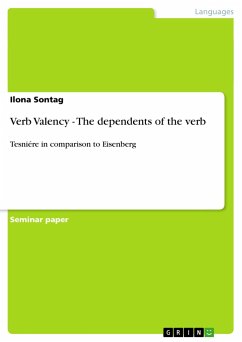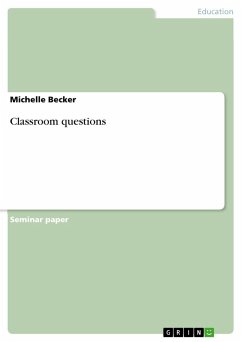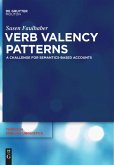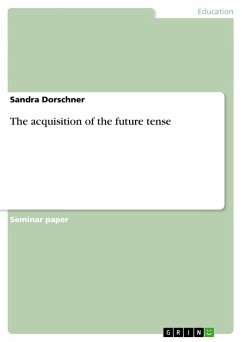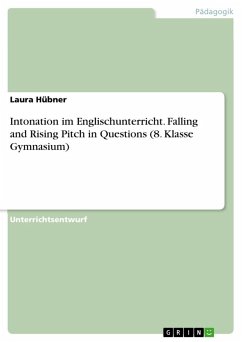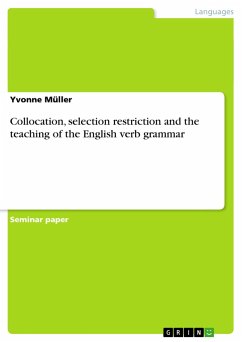Seminar paper from the year 2008 in the subject Didactics - English - Grammar, Style, Working Technique, grade: 1,7, RWTH Aachen University (Institut für Anglistik ), course: Syntactic Questions, language: English, abstract: Although the idea of valency is not new in the field of linguistics, it seems to have receivedrelatively little attention up to now. Lucien Tesnière, who became known as the developer ofthe so called "dependency grammar", was one of the first linguists who described thecapacity of a verb to bind a certain number of "actants"1 (cf. Tesnière 1980, 385-386). In hisposthumously published book "Eléments de syntaxe structurale"2 (1959) he called thisphenomenon "valency". Later on, other linguists adopted his notion, modified and adapted it.One of these linguists is Peter Eisenberg, a German philologist, who wrote some recentworks on grammar in which the role of verb valency is often in the center of attention.Because a period of thirty years had passed since Tesnière's first attempt to define thephenomenon of valency in linguistics, Eisenberg's approach is a lot more detailed andincludes different criteria for he had the opportunity to contribute his knowledge of othertheories which were created after Tesnière's book had been published.This term paper will draw a comparison of two works written by the authors mentionedabove with special regard to the words which are dependent on verbs. Since the verb is oftenin the center of attention when the notion of valency is concerned, the group of the otherwords which are "governed" by the verb does not seem to be examined in the same way.Furthermore there does not even seem to be a standard term for such words (perhaps exceptfor "arguments" (cf. Meyer 2005, 30), but even the notion of arguments is used in diverseways), so that I will use the word "dependents" to refer to every possible linguistic elementwhich can be bound by a verb.The main aim of this paper will not only be to provide a small overview of dependents invalency theories, but also to illustrate the pros and cons of each of these theories in acomparison at the end.To introduce the reader into the topic, a small overview of the notion of valency will begiven at the beginning of the term paper. Later on, the most important aspects concerningdependents of both theories will be presented separately. After having compared the twoworks, pointed out the main discrepancies and having stated their benefits respectively theirdeficiencies, a final conclusion will be given.
Bitte wählen Sie Ihr Anliegen aus.
Rechnungen
Retourenschein anfordern
Bestellstatus
Storno

